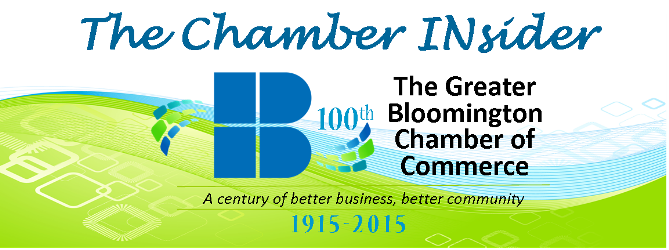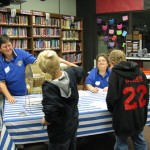The Chamber’s Franklin Initiative Reality Store is a fun simulation that helps 7th and 8th graders connect academic achievement with the kind of lifestyle they envision for themselves as an adult. In the activity, students pretend to be a 28-year-old just starting out in their career. They are assigned salaries based on their actual GPA, and can decide if they are married or single and how many children they have, if any. Then, they proceed from table to table (staffed by Franklin Initiative volunteers) to buy housing, transportation, food, insurance, child care, etc. Leftover money can be used at the pets, electronics, and vacations tables.
The 2008-2009 Reality Store Final Report is now available online – download the full report by clicking here. Here is a summary of important findings.
During the 2008-2009 school year, Reality Stores were organized at all four local middle schools: Batchelor, Edgewood, Jackson Creek, and Tri-North, reaching a total of almost 1,000 7th and 8th graders. Students are surveyed before and after the Reality Store. An analysis of these survey results shows the following positive outcomes from the activity following the Reality Store:
- Overall, 88% of students reported that they enjoyed participating in the Reality Store.
- The number of students who plan to complete some kind of postsecondary education increased from 87% to 92%.
- The number of students who plan to complete at least a four year college degree increased from 76% to 82%, and the number of students who plan to complete a graduate degree increased from 41% to 54%
- The number of students who say they “have no idea” what level of education they will achieve decreased from 9% to 5%.
- Students’ written feedback shows that the activity reinforces the following important realizations:
- Life as an adult is complicated and involves sacrifices and difficult choices
- Getting good grades now is important to their future career and standard of living.
- Continuing education after high school is probably necessary for the lifestyle they expect.
- The activity helps students determine how much education they will need in their life.
- During the activity, students practice budgeting and decision making skills
- Volunteers have a positive, meaningful experience.
It is worthwhile to review student written comments about their experiences during the Reality Store, all of which are included in the appendix to the final report. In addition to their entertainment value, these comments show that the Reality Store stimulates a great deal of reflection and learning in the participants. Surveys show that volunteers have a great time too. The next one is at Jackson Creek Middle School on April 6 & 7. To sign up to volunteer, contact Carol Kelly at ckelly@chamberbloomington.org.

